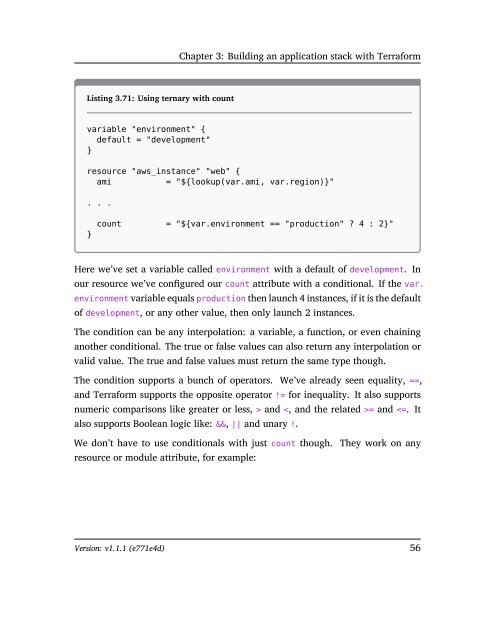The Terraform Book
TheTerraformBook_sample
TheTerraformBook_sample
You also want an ePaper? Increase the reach of your titles
YUMPU automatically turns print PDFs into web optimized ePapers that Google loves.
Chapter 3: Building an application stack with <strong>Terraform</strong><br />
Listing 3.71: Using ternary with count<br />
variable "environment" {<br />
default = "development"<br />
}<br />
resource "aws_instance" "web" {<br />
ami<br />
= "${lookup(var.ami, var.region)}"<br />
. . .<br />
}<br />
count = "${var.environment == "production" ? 4 : 2}"<br />
Here we’ve set a variable called environment with a default of development. In<br />
our resource we’ve configured our count attribute with a conditional. If the var.<br />
environment variable equals production then launch 4 instances, if it is the default<br />
of development, or any other value, then only launch 2 instances.<br />
<strong>The</strong> condition can be any interpolation: a variable, a function, or even chaining<br />
another conditional. <strong>The</strong> true or false values can also return any interpolation or<br />
valid value. <strong>The</strong> true and false values must return the same type though.<br />
<strong>The</strong> condition supports a bunch of operators. We’ve already seen equality, ==,<br />
and <strong>Terraform</strong> supports the opposite operator != for inequality. It also supports<br />
numeric comparisons like greater or less, > and = and


